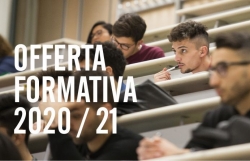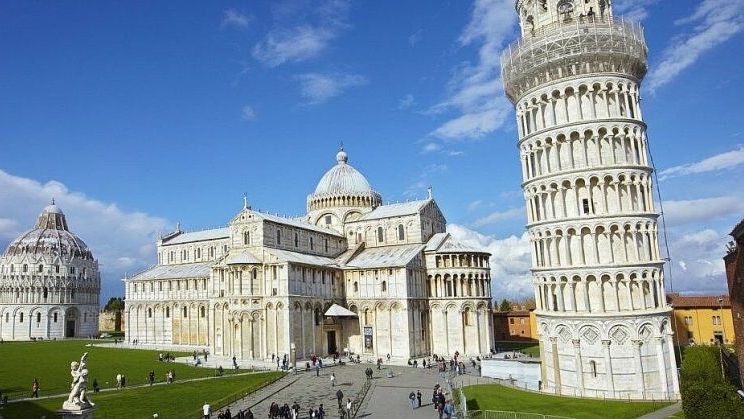
Studying abroad in Spain and noteworthy issues in its higher education system
Latest
 |
| Studying abroad in Spain and noteworthy issues in its higher education system. |
As part of a series of periodic articles providing detail information regarding higher education systems of some of the aforementioned countries, the research team of Hanoi University (HANU) working under the RecoAsia project with EU on degree recognition and exchange will focus on introducing the Spanish higher education system (liberal arts not included) and some issues one should be aware of when applying to study abroad.
Compared to Germany or Italy, Spain is rather slow in reforming its education apparatus to comply with the Bologna Process, as the old tertiary system was still used in higher education institutions until the passing of the Royal Ordinance No. 55/2005 and 56/2005 (Official Gazette No. BOE-A-2005-1256 dated January 25, 2005) and Royal Ordinance No. 1393/2007, published and came into effect on October 29, 2007, which means that it was not until the 2006-20207 school year that the new curriculum framework was applied for Spain’s higher and postgraduate education.
The current Spanish higher education system consists of 83 schools, of which 50 are public and 33 private schools (data for the 2018-2019 school year), which are divided into 3 training levels:
University degree (Grado): 4 years, requiring 240 credits
Master's Degree (Máster): 1-2 years, requiring 60-120 credits
Doctoral degree (Doctorado): at least 3 years
After completing the University Degree program, learners are usually divided into 5 fields which consists Arts and Humanities; Social Science and Legal; Natural Sciences; Engineering and Architecture, Medicine, and will be awarded a Bachelor's Degree (Título de Grado) and an accredited Bachelor Degree (Graduado), while completion of the Master's Degree program will award a Master's Degree (Título de Máster ) and recognition of a Master's degree (Máster official / Máster Universitario), while completion of the Doctoral Degree program will be awarded a Doctoral Degree (Título de Doctorado) and recognition of a Doctorate degree (Doctor).
It should be emphasized that the term Máster Universitario in the national education system of Spain is not identical with that of Master Universitario di I Livello (MU1), Master Universitario di II Livello (MU2) in the Italian education system. Because in order to be awarded the Título de Máster, Spanish universities must register for training programs and must be authorized by the Council of Universities (Consejo de Universidades), the Autonomous Community (Comunidades autónomas – as Spain is divided into 50 provinces, belonging to 17 different regions / autonomous zones with each region / autonomous region having its own legislative and executive powers) and must be compliant with the provisions of the Royal Ordinance 1393/2007. Training programs and codes will be included in the official system of RUCT (Spanish University Registration Bureau, Centers and Degrees).
As for the Master’s degree training program, since before the 2006-2007 school year the Spanish university system still followed the old tertiary system and as the university level lasts 3-4 years with the number of credits ranging from 180-240, the following Master's Degree courses after the reforms must also have a number of credits ranging from 60-120 to ensure that learners of both the new and the old system will still complete a total 300 credits after completing the program.
In addition to the three above-mentioned degree courses, in the Spanish higher education system as well as the Italian education system there are also a number of other postgraduate training courses that are not academic oriented, not part of the national education system. people. Those courses are called Títulos propios / Máster propio. These are tailor-made courses offered by universities (or affiliated with businesses), responsible for their own training programs, training methods, timing of implementation, and school-issued certificates. These courses are not subject to national accreditation. After completing the course, learners are awarded Diploma di Master proprio and not recognized with any degree. On the certificate also contains information distinguishing between the two types of Máster Official and Máster Propio.
Both Máster Official and Máster Propio courses are in the same level 3 (according to the 4-level MECES framework) but are not consistent in academic values. This also applies to Laurea Magistrale and MU1, which are both within the level 7 of the Italian QTI 8-level framework. It should be noted that the national qualifications framework is only used as a reference framework to support the assessment and certification of qualifications between countries.
In addition, to better distinguish the value and basic features of these two courses, please refer to the following comparison table:
| Criteria | Máster Official | Máster Propio |
| Access to the labor market | Suitable for jobs in the public sectors | Suitable for improving career capability |
| Duration | Between 60-120 credits | Between 60-120 credits |
| Entry requirement | Bachelor’s degree or equivalent | Bachelor’s degree or equivalent |
| Allow access to PhD | Does allow access to PhD | Does not allow access to PhD |
| Recognition in other countries | Accredited by all universities within the EU education sector. | Depending on the laws of different countries |
| Degree awarded | Master’s Degree | Certificate |
Therefore, the entry requirement for registering for a PhD is to accumulate at least 300 credits and have a Master's Degree (Título de Máster) / Máster Official degree. Doctoral training courses are all published in the National Gazette (Boletín Oficial del Estado).
Recommendation:
Based on our knowledge and experience, the research team would offer some recommendations in choosing courses and building exchange programs as follows:
Before enrolling in a course in the Spanish education system and in order to choose the right course for your personal purpose, learners need to pay attention to find out information about the course name, entry conditions, time study time, forms of training, diplomas granted….
When building exchange programs with Spain, it is prudent to choose programs in the national education system that have a training code.
The list of formal training courses can be found in the following link:
https://www.educacion.gob.es/ruct/home; https://srv.aneca.es/ListadoTitulos/
Spanish higher education system
http://www.mecd.gob.es/redirigeme/
http://www.cimea.it/files/fileusers/344_4717_Accreditamento_corsi_universitari_CIMEA_2008.pdf
Royal Ordinance No. 55/2005 and 56/2005 and No. 1393/2007
https://www.boe.es/eli/es/rd/2007/10/29/1393/con
(https://www.boe.es/diario_boe/txt.php?id=BOE-A-2005-1255)
National Gazette (Boletín Oficial del Estado): https://www.boe.es/diario_boe/
Text distinguishing between the two courses Máster Official and Máster Propio
https://www.uab.cat/web/study/graduate/what-are-the-differences-between-an-official-master
Italian qualification framework: http://www.quadrodeititoli.it/Index.aspx?IDL=1
Spanish qualification framework: https://www.boe.es/buscar/doc.php?id=BOE-A-2011-13317

| Information on Italian art and music higher education system TGVN. When it comes to beautiful Italy, world-famous architecture and fashion immediately comes to mind, as well as interior design, music and especially Opera. Currently, ... |

| Information on European qualifications – Things you need to know The research team under the RecoAsia project will clearly present the basic information on the qualifications and their value to help students and agencies operating ... |

| Italian education system & several things before making decisions on study in Italy TGVN. Studying abroad is becoming increasingly more and more in demand for Vietnamese youths. However, due to the diversity and differences in various education systems, ... |



















